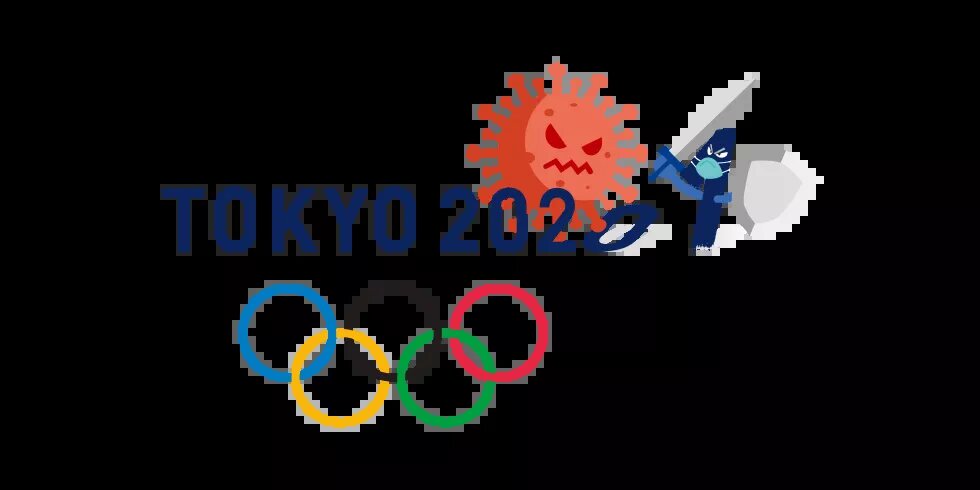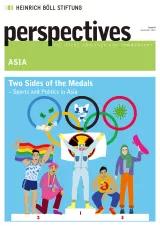East Asians take the hosting of major sporting events very seriously. The three previous Summer Olympics in East Asia all had symbolic meanings for the respective hosts and for the Olympic movement. But the Coronacrisis has upset Japanese ambitions for the 2020 Tokyo Olympics, bringing not just additional socio-economic costs but casting a shadow over Prime Minister Abe's political legacy.

The Olympic flame has arrived in Tokyo, but not in the manner envisaged by the organisers of the Tokyo 2020 Olympics. Reluctantly, in the face of the global coronavirus pandemic, the International Olympic Committee (IOC) and the Tokyo 2020 Olympics Organising Committee had no option but on 24 March to cancel the domestic torch relay across Japan and postpone the Olympic Games until the summer of 2021. For the moment, the Olympic flame – alight but hidden in a secret location – and the Olympic movement remain in suspended animation.
Tokyo was set to become the first Asian city to host two Summer Olympics. But now it has become the first city anywhere in the world to suffer two hosting disruptions. Tokyo had been due to host the 1940 Olympics until the wartime situation forced cancellation (Collins 2007). The memory of those “missing Olympics” has come back to haunt Japan. This time the Olympics have been postponed, not cancelled, but it has still been a bitter pill for Prime Minister Abe Shinzo and indeed for the Japanese public as a whole. Deputy Prime Minister Aso Taro has even gone so far as to describe Tokyo 2020 as the “cursed Olympics”.
There is little doubt that the first two decades of the 21st century have seen global economic and political power slowly but steadily shifting to Asia, especially to East Asia. This trend now includes “soft power” sporting mega-events. The Olympic movement, indeed, is now in the middle of a cycle that confirms the prominence of East Asian sporting hosts. In 2018 the Winter Olympics were held in PyeongChang, South Korea, while in 2022 they will be hosted by Beijing-Zhangjiakou. Sandwiched in the middle are the Tokyo Summer Olympics which, under the new timetable of July to August 2021, will finish barely six months before the Beijing Winter Olympics begin.
Despite the internationalist Olympic ideal of sport bringing peoples and countries together through peaceful competition, the exciting sporting events cannot be separated completely from the issues of nationalism and identity, international and intra-regional rivalry, and domestic politics. Given the legacies of historical – and even present-day – antagonisms, the East Asian region is no exception to this rule. In fact, the East Asian environment might even accentuate such tendencies, for “not only is sport political, but it is arguably more political in Asia than elsewhere in the world” (Cha 2009, 23).
The three previous East Asian Summer Olympics had important symbolic meanings for the host countries. In 1964, Japan had re-emerged in the world community as a peaceful and economically successful state after its militaristic exploits during World War II. South Korea’s “coming out party” at Seoul in 1988 highlighted a new economic power, equipped with state-of-the-art technology and a self-confidence that belied the tense stalemate in inter-Korean relations on the peninsula. The intensity and spectacular magnitude of Beijing 2008 symbolized China’s endeavours to secure its place – and achieve world recognition – as a major and modernized economic, political and sporting power on the global scene, though not without frequent references to centuries-old Chinese culture and civilisation. Therefore, these three Games provided a means of highlighting the “enhanced” national identity of the respective hosts (Cha 2009; Kelly and Brownell 2011).
Japan in 2020 or 2021 no longer needs a “coming out party”, but it does wish to remind the world of its particular national identity by being an efficient, welcoming and creative host. The Rugby World Cup held successfully across Japan in October 2019 already amply demonstrated those characteristics, which even the passing Typhoon Hagibis could only partially dampen. Yet, in the past decade or so, despite all the eloquence of Prime Minister Abe’s claim that “Japan is back”, Japan has been living in the shadow of the emerging Chinese economic and political “superpower”. The debilitating images of the “lost decades” of the 1990s and 2000s may have dissipated, not least because Japan has become such a popular tourist haven for other Asians, but in reality Japan has continued to struggle in reconstructing its economy and way of life to cope with the demands of the 21st century.
Although international sporting rivalry is important, not least as demonstrated by China and the United States determinedly pushing to garner the most gold medals, there is also a regional dimension. This pits Japan against its closest geographical and sporting rivals, China and South Korea. Japan may wish to show these neighbours that, despite a shared turbulent past, sport can transcend long-standing animosities, but there is little doubt that the media and the publics in both China and South Korea will watch carefully for any perceived slights or failures by Japan, especially when their own competitors are directly facing Japanese athletes or teams (Mangan et al 2017).
Hosting the Olympics also has domestic repercussions. The economic benefits, much touted in advance, do not always materialize and the global media spotlight often picks out less-than-ideal aspects of the host society. Japan’s militaristic past and the Abe administration’s flirting with nationalist sentiments today will certainly be aired. Rarely is the hosting politically neutral. The Japanese government in 1964, by running the torch relay through Okinawa, then still under post-war US administration, deliberately strengthened the argument for its reversion to Japan. In South Korea the fear of losing the Olympics if martial law were to be declared was a crucial factor in encouraging the dramatic move to democracy in 1987 (Cha 2009: 123-128). Yet, paradoxically, 2008 did not bring any equivalent political transformation in China, despite the wishful thinking of human rights advocates.
In the case of 2020/2021, it is long-serving Prime Minister Abe’s political legacy that is linked to the eventual Games. His strong determination to carry on with hosting the Games this year was reflected in a stubborn pretence that everything was “normal” and in delaying announcing emergency measures to deal with the coronavirus pandemic until after pressure from athletes and certain countries overseas had forced the IOC into action. His visionary economic reform programme, labelled “Abenomics”, had run into the ground even before the coronavirus struck, and the additional costs incurred by the postponement, which could reach as much as USD 2.7 billion (Ozanian 2020), will further harm the struggling economy. Abe’s dream of revising the pacifist Constitution has also been foundering in the face of divided public opinion, and his high-profile foreign policy agenda on contentious issues with North Korea and Russia has failed to produce any breakthroughs.
From Bang to Whimper
Consequently, even more than before the postponement, Abe sees a successful Olympics as a means, perhaps the only means, to enhance his own status and secure his “place in history”. But the summer of 2021 is politically tricky, since Abe’s term as party leader (and therefore prime minister) expires in September and by law he must hold a general election before late October. With several rivals eagerly waiting in the wings, including the popular Tokyo Governor Koike Yuriko, who has already disagreed with him publicly over his ineffective coronavirus response, Abe may find that his premiership ends not with a bang but a whimper. Ironically, the postponement may actually hasten the post-Abe era in Japan.
In the three previous Asian Summer Olympics much of the international media interest was in how far the hosting and opening up would impact the domestic society, economy and politics of the host country. However, the opposite question, namely to what extent the hosts have impacted the evolution of the Olympic movement, should also be asked. At the very least the overpowering Euro-centric lens of the IOC has been removed (Mangan et al 2017). Following on from Beijing 2008, the Tokyo Olympics will undoubtedly sustain this process of rebalancing the power of the “East” against the “West” in the corridors of the IOC. As a footnote, ironically the Beijing Olympics had two other impacts on the scale and rituals of the Olympics. The huge financial cost of that massive celebration ensured that subsequent Olympics, and that includes Tokyo 2020, which prides itself on a compact hosting, will never try to compete on such a scale. The political controversy surrounding the lengthy global torch relay in 2008 also ensured that in future all torch relays would only occur within the host country. In the spring of 2021 the Olympic flame will be returned to its planned starting point in Fukushima prefecture, the epicentre of the tsunami and nuclear meltdown in 2011, to begin its tour around Japan.
The Tokyo Olympics were sold to the IOC as a means to rejuvenate Japan after the 2011 Tohoku earthquake devastation, as well as to showcase the combination of innovation with traditional values (“Discover Tomorrow”). But the delayed Olympics in 2021 will take place in a completely different atmosphere thanks to the coronavirus pandemic. The most recent Asian Olympics in February 2018 in PyeongChang had been marketed as opening up “New Horizons” – bringing winter sports to new places – but at the last moment it changed dramatically into the “Peace Olympics”, at least in the rhetoric of South Korean and IOC leaders. After escalating tensions on the Korean peninsula in the second half of 2017 threatened to cast a warlike shadow over the sporting events, North Korean leader Kim Jong Un suddenly decided to seek reconciliation with the South by active participation in the Winter Olympics, sending his sister to the opening ceremony and allowing a joint Korean entry into the opening ceremony and the formation of a joint women’s ice hockey team.
So too the coronavirus outbreak and its resolution will have major implications on how the Tokyo Games are perceived. The Japanese will hardly welcome any attempt to label these as the “Coronavirus Olympics”, but history will inevitably link these Games to the Covid-19 pandemic. Yet, conversely, the Japanese government and people will have an opportunity not only to demonstrate that Japan has successfully recovered from that outbreak but also to celebrate the return of the globe to good health. Abe’s call for the re-scheduled Olympics to be a “beacon of hope” for the world sounds like a rhetorical flourish to mask his disappointment at the postponement, but it also contains a kernel of truth.
References:
Cha, Victor D. 2009. Beyond the Final Score: The Politics of Sport in Asia. New York: Columbia University Press.
Collins, Sandra. 2007. The 1940 Tokyo Olympics: The Missing Olympics. Abingdon: Routledge.
Kelly, William and Susan Brownell, eds. 2011. The Olympics in East Asia: Nationalism, Regionalism and Globalism on the Center Stage of World Sports. New Haven: Yale University.
Mangan, J.A., Qing Luo, and Sayuri Guthrie-Shimizu, eds. 2017. The Olympic Games: Asia Rising – London 2012 and Tokyo 2020. Beijing: ICUC.
Ozanian, Mike. 2020. "Postponement of Tokyo Olympics Expected To Increase Games' Cost by $2.7 Billion", Forbes, March 25, 2020.
